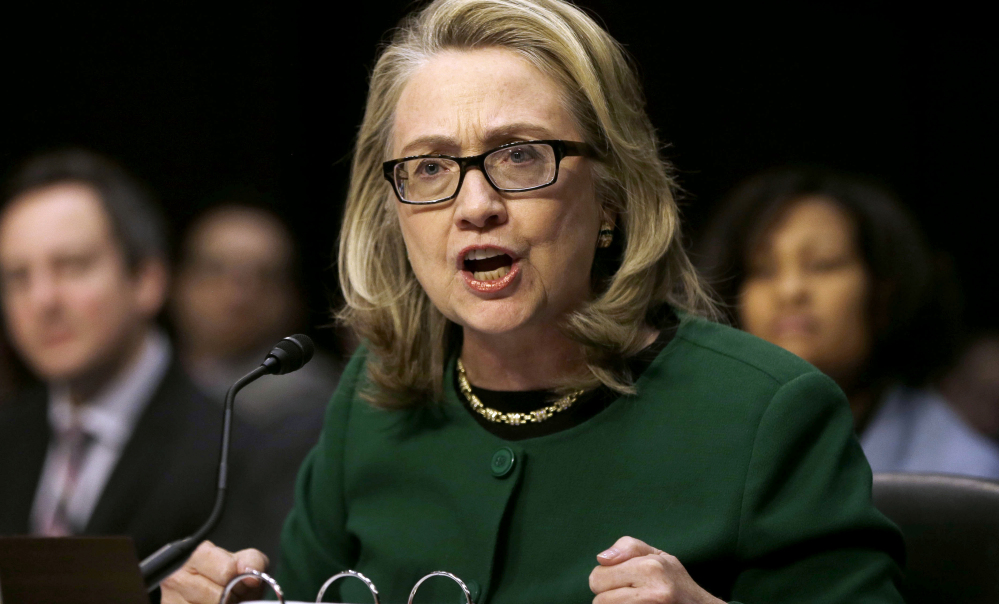It’s difficult to know exactly what Hillary Clinton was thinking when she set up the personal email account that she used to conduct government business during her entire tenure as secretary of state, but it’s easy to understand what she was trying to do: keep secrets.
Official government emails are considered public records. They can be reviewed by congressional oversight committees and are subject to Freedom of Information Act requests from journalists, historians and other researchers. By creating a private email account before becoming secretary of state and using it for the four years she was in office, it is clear that she was trying to avoid the scrutiny that comes with the job. She also may have been violating at least the spirit of the law.
WHO ELSE KNEW?
The revelations about Clinton, first aired Tuesday in a New York Times story, have implications that go far beyond the former secretary of state.
The story said Clinton used her private email for all of her correspondence, both personal and professional, for her entire time at the agency. That means everyone who got an email from her during that period, including the White House, would have known that she was communicating with an unofficial account.
Did no one notice that the secretary’s email never came from a “.gov” address? Or had they come to expect communications from high officials to come from off-the-books accounts?
Clinton is not the only government official to use technology that gets around the spirit of the public records law – she’s not even the first secretary of state. Colin Powell has acknowledged through his staff that he used a private account for some communications. But it’s no consolation to find out that other officials are also keeping their communications secret. Instead, it’s just more evidence that it is a serious problem.
This is also happening on the state level. It was revealed last year in hearings on the accusations of document-shredding at the Maine Center for Disease Control and Prevention that some executive branch employees use BlackBerry devices to communicate via text messages that are not archived.
PUBLIC SHUT OUT
Open-record laws are one mechanism to have accountability in government, but they are never popular with most office holders. The Clinton revelations show what’s at stake.
It’s not only a matter of the former secretary creating a layer of complexity between her and congressional investigating committees, it’s also a matter of hiding unclassified information from the people.
Clinton is a likely presidential candidate, and there will be a natural tendency for Democrats to rush to support her, even though they would be outraged if she had been a member of a Republican administration.
But it shouldn’t matter. Even if it’s shown that Clinton did not violate the letter of the Federal Records Act (it was amended after she left office to prohibit this kind of work-around), she still should be called to account for keeping her communications secret.
And all public record laws, both federal and state, should be updated to keep pace with the development of technology.
Copy the Story LinkSend questions/comments to the editors.



Success. Please wait for the page to reload. If the page does not reload within 5 seconds, please refresh the page.
Enter your email and password to access comments.
Hi, to comment on stories you must . This profile is in addition to your subscription and website login.
Already have a commenting profile? .
Invalid username/password.
Please check your email to confirm and complete your registration.
Only subscribers are eligible to post comments. Please subscribe or login first for digital access. Here’s why.
Use the form below to reset your password. When you've submitted your account email, we will send an email with a reset code.